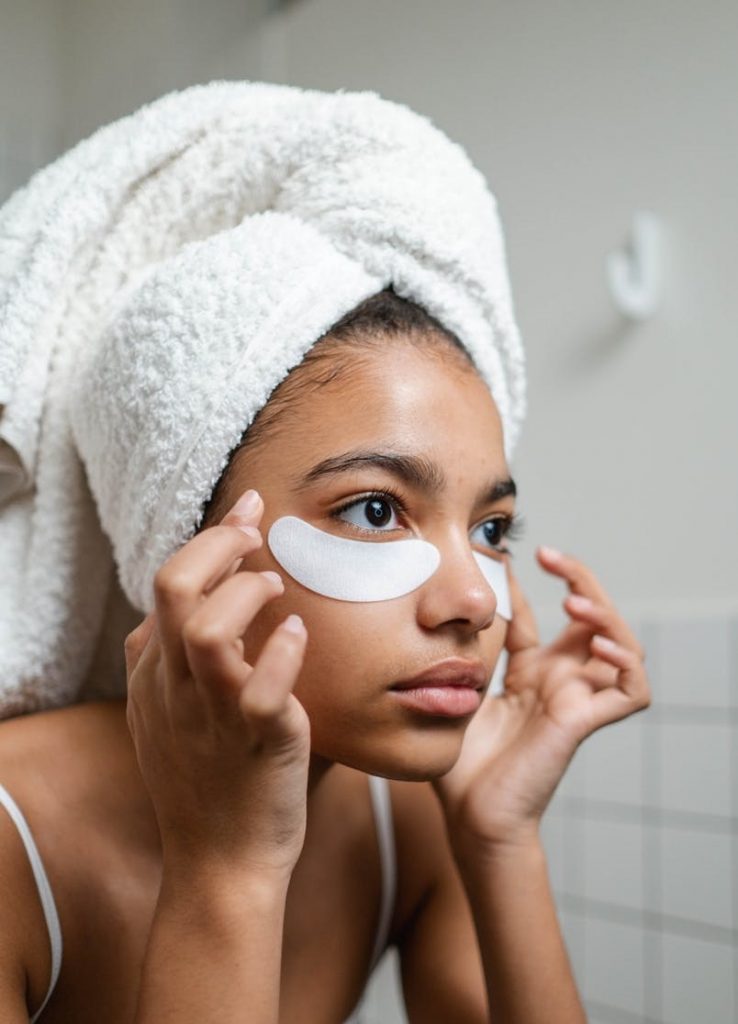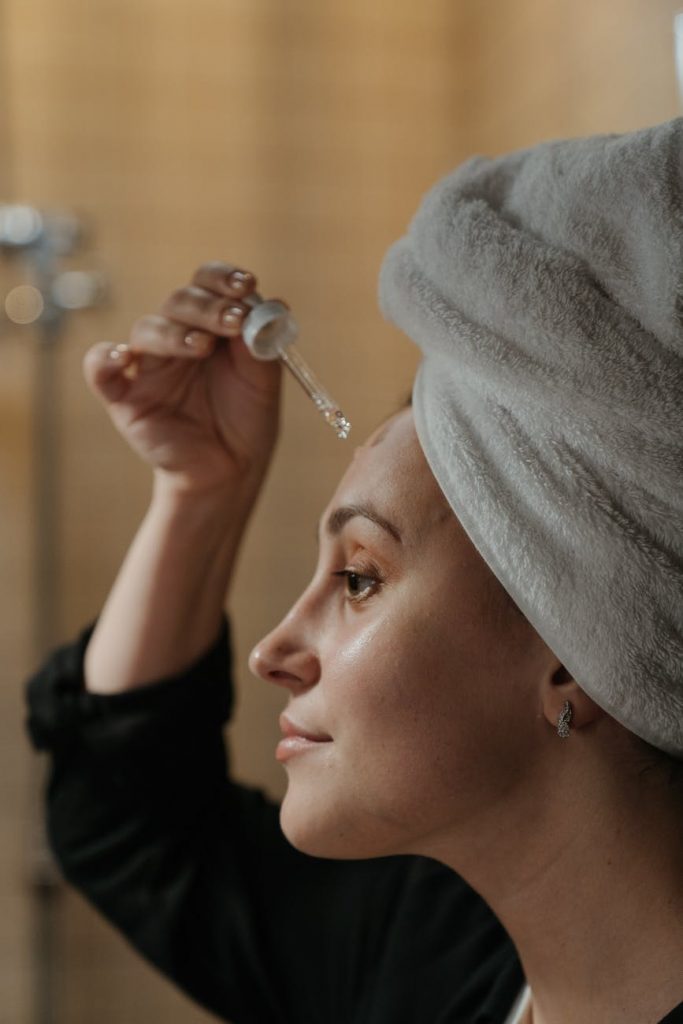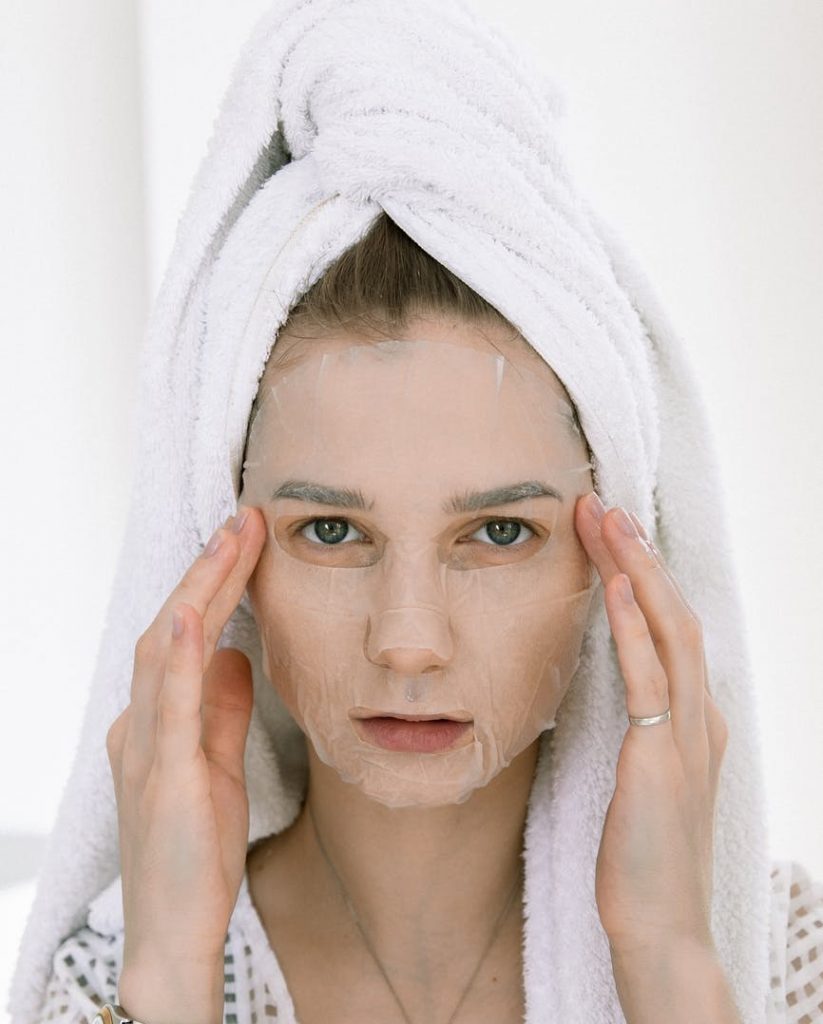How To Know Your Skin Type
Have you ever looked in a mirror and thought why does my skin look that way? Then you’re not alone. Most of use buy skin care products not by ingredients but by packaging. This is why it is difficult to understand why a certain product which worked well for on someone else skin isn’t working for me. Now, don’t let your skin go through the same ordeal.
So without further ado let’s start. Skin care is trending nowadays and for good reason. After years of misinformation and skipping sunscreen (shudders..) we are finally in a time where people invest in their skin.
The initial step of building any skincare routine is to know your skin type. But first let me explain the difference between Skin Typeand Skin Condition.
Skin Type: Your skin type is what you are born with. It is determined by your genes. Any external factors such as heat and humidity do not affect it. Skin types are oily, dry, combination and sensitive.
Skin Condition: Skin condition is a different thing. You are not born with it. Multiple external factors affect your skin to cause a condition. Pigmentation, dehydration and aging are common skin conditions.
Now that you know the difference between skin type and skin condition it will be easier for you to understand your skin. There are two methods for determining your skin type.
The Bare-Faced Method
This is a tried and tested method to understand your skin type. Wash your face with a mild cleanser and then let it air dry. Sit tight for a minimum of fifteen minutes (half an hour works best). Then closely observe your skin. When there is visible shine on your face then you’ve got oily skin. If the shine is visible only in your t-zone (forehead, nose and chin or cheeks, nose and chin) then you’ve got combination type skin. If your face feels tight and stretched if you smile then you’ve got dry skin.
The Blotter Method
This method is far quicker and effective. Take a blotting paper and dab your face lightly with it. visible excess oil on the paper your skin type is oily skin. If there is a little oil then your skin type is a combination. If there is no oil then your skin type is dry. Now that you have determined your skin type I am going to write a basic skin care routine for each skin.
- Oily Skin

People with oily skin usually have a shiny appearance on their face. Overproduction of sebum is the cause of this shine. There is visible texture on the skin and pores are dilated.
However, people with oily skin don’t have to stress about wrinkles. Because the natural moisture produced by sebaceous glands is going to make their skin look younger and more supple. The downside is that the oily skin is susceptible to blemishes and easily gets congested.
The basic skin care routine for oily skin is to use a mild cleanser preferably a foaming one and a lightweight moisturiser in the morning and at night. NEVER SKIP SUNSCREEN. Use enzyme or chemical exfoliation once a week and a mud mask twice a week.
Don’t use harsh cleansers that can strip your skin of it’s natural oils. Don’t use abrasive exfoliants i.e exfoliants having small granules of nuts or seeds. These small granules can cause micro tears in your skin and bacteria can easily start a family there. This will be the main cause of Acne and Blemishes.
2. Combination Skin

Combination type skin is a little complicated to understand. People with combination skin type often share their experience differently. How is that possible? All of them have a single skin type. How can it be more different?
This happens because some people have more sebaceous glands on their cheeks, nose and chin while their forehead and sides of the face are dry(I call them type 1). Other people have these glands on the forehead, nose and chin while their cheeks are dry(I call them type 2). Some people experience breakouts more often while others don’t. I have type 1 combination skin. I don’t experience breakouts very often but blackheads and whiteheads pop up every now and then.
The basic skincare routine for combination skin is to use a mild gel cleanser (which doesn’t foam and dry out skin) in the morning and at night. NEVER SKIP SUNSCREEN. Enzyme or chemical exfoliation once a week is ideal.
Use a gentle clay mask followed by a soothing/moisturising mask twice a week. Lightweight moisturiser which absorbs easily is ideal in summer. For winters you need a heavyweight moisturiser which doesn’t clog pores. Use your cleanser once a day(at night) in winter if it dries out your skin and twice a day in summer. If it still dries out your skin it’s time to change the cleanser.
3. Dry Skin

Dry skin lacks moisture. Pores are not visible. Skin is usually texture free. Feels dry all year long. People with dry skin face difficulties in winter. If the skin is not moisturised properly it causes flaking and itching. Staying hydrated is a must for dehydrated skin but it doesn’t have any effect on dry skin. You could drink a gallon of water and still end up with dry skin because it’s a type not a condition.
The basic skincare routine for dry skin is to use a gentle no-foam cleanser twice a day in summer and once a day (at night) in winter. Cleanse your face with normal temperature water in the morning. Use a heavyweight moisturiser all year long. Enzyme or chemical exfoliation once a week is best. Use a hydrating mask in summer and in winter, twice a week. Sheet masks and face mists are your best friend. And again NEVER SKIP SUNSCREEN.
4. Sensitive Skin

If your skin reacts badly to most of the products then you have sensitive skin. Building a skin care routine for sensitive skin is quite difficult because you never know which ingredient is going to cause a flare up. But I am going to make it a little easy by listing the things you should avoid when buying a product.
- Fragrance
- Alcohol
- Paraben
- Essential Oils
- Chemical Sunscreen
- Harsh Exfoliants
- SLS, SLES
Avoid these things and instead look for products that have soothing or calming written on them. Ingredients which will help your skin are aloe gel, chamomile, shea butter, squalane, beeswax etc.
Concluding Remarks
This article is to help you determine your skin type. Health care matters the most in everyone life. It is necessary to know your skin type because a product only works if it’s made for your specific skin concerns. If you have determined your skin type then the first step to a healthy beautiful skin is finished.



